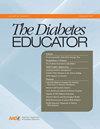Leveraging the Electronic Medical Record to Identify Predictors of Nonattendance to a Diabetes Self-Management Education and Support Program
IF 3.9
Q1 Health Professions
引用次数: 2
Abstract
Purpose The purpose of this study is to identify patient-specific factors, easily obtainable from the electronic medical record (EMR), that are associated with nonattendance to a group Diabetes Self-Management Education and Support (DSMES) program among an adult population with type 2 diabetes. Methods This study used a retrospective cohort design, with attendance to a group DSMES session as the primary outcome. The study included adult patients with diagnosed type 2 diabetes who were scheduled for a group DSMES session between March 1, 2013, and June 30, 2017. Patients who were pregnant or who had other types of diabetes (eg, type 1 diabetes, prediabetes, gestational diabetes) were excluded. Results A higher A1C, required copay for DSMES, low socioeconomic status, increased number of diabetes medications prescribed, the presence of a prescription for any insulin, and a higher calculated total daily dose of insulin were all associated with a decreased likelihood of attendance. Only older age was associated with an increased likelihood of attendance. Conclusion Using the EMR to identify patients who need more intensive intervention strategies can help programs direct resources to those who need them most. Having identified these at-risk individuals, a targeted communication and outreach strategy can be developed to assist these individuals with overcoming barriers to attending DSMES.利用电子病历确定糖尿病自我管理教育和支持计划缺席的预测因素
本研究的目的是确定与成人2型糖尿病患者不参加群体糖尿病自我管理教育和支持(DSMES)计划相关的患者特定因素,这些因素很容易从电子病历(EMR)中获得。方法本研究采用回顾性队列设计,以参加DSMES小组会议为主要结果。该研究纳入了诊断为2型糖尿病的成年患者,他们计划在2013年3月1日至2017年6月30日期间参加DSMES组会议。孕妇或患有其他类型糖尿病(如1型糖尿病、前驱糖尿病、妊娠糖尿病)的患者被排除在外。结果:较高的糖化血红蛋白、DSMES所需的共付费用、较低的社会经济地位、糖尿病药物处方数量增加、任何胰岛素处方的存在以及较高的每日计算总胰岛素剂量都与出勤率降低有关。只有年龄越大,出勤率越高。结论利用EMR识别需要更强化干预策略的患者,可以帮助项目将资源导向最需要的人群。在确定了这些风险个体之后,可以制定有针对性的沟通和外展战略,以帮助这些个体克服参加DSMES的障碍。
本文章由计算机程序翻译,如有差异,请以英文原文为准。
求助全文
约1分钟内获得全文
求助全文
来源期刊

Diabetes Educator
医学-内分泌学与代谢
CiteScore
4.00
自引率
0.00%
发文量
0
审稿时长
6-12 weeks
期刊介绍:
The Diabetes Educator (TDE) is the official journal of the American Association of Diabetes Educators (AADE). It is a peer-reviewed journal intended to serve as a reference source for the science and art of diabetes management.
TDE publishes original articles that relate to aspects of patient care and education, clinical practice and/or research, and the multidisciplinary profession of diabetes education as represented by nurses, dietitians, physicians, pharmacists, mental health professionals, podiatrists, and exercise physiologists.
 求助内容:
求助内容: 应助结果提醒方式:
应助结果提醒方式:


